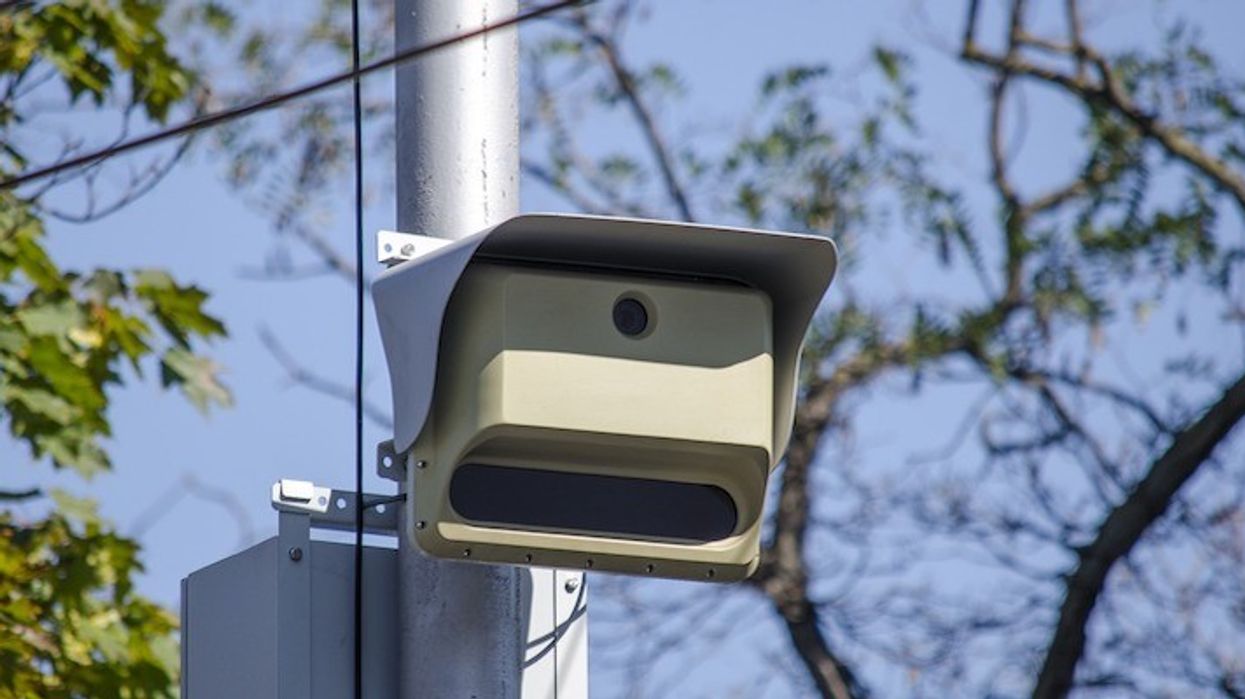UPDATE: Where Every Speed Camera is Located in Toronto (MAP)
As of Monday, July 6, the 50 automated speed enforcement cameras that have been recently installed across Toronto will begin issuing tickets to drivers caught speeding.
Last December, the Ford government approved regulations to allow municipalities to use automated speed enforcement (ASE) cameras. Following the government's approval, cameras and warning signs were then installed at 50 locations across the city on local, collector, and arterial roads in Community Safety Zones near schools.
Shortly after, the City began sending warning letters to drivers during the 90-day pre-ticketing period. Ticketing was scheduled to start in April, as per the provincial regulations, but was delayed due to the COVID-19 shutdown.
Throughout the pandemic, the City said while car traffic had decreased, there was a spike in speeding and stunt driving. Just in February and March, before the temporary suspension of the program, Transportation Services staff issued more than 25,000 warning letters to drivers. Between January 27 and June 18, extremely high speeds were detected at nine ASE locations. A full list of locations can be found here.
READ: Toronto Is Installing 50 New Photo Radar Cameras By Spring 2020
“We have fought long and hard for the provincial permission and regulations to be able to use this technology to help protect pedestrians and crackdown on speeding in our neighbourhoods," said Mayor John Tory.
"Automated Speed Enforcement is one example of the data-driven actions we are taking to achieve our Vision Zero road safety goals. This is about making our roads safer and saving lives. I’m confident the program will help slow drivers down in zones where children and older adults are likely to travel."
Leading up to the launch of ticketing, here's everything you need to know about the city's new speed cameras.
Ticketing
If a vehicle is detected travelling in excess of the posted speed limit in an ASE-enforced area, the registered owner of the vehicle will receive a ticket — regardless of who was driving the vehicle.
The total payable fine amount includes a set fine, which is determined by Schedule D under the Provincial Offences Act, a proportional victim fine surcharge and applicable court costs. Offenders are only fined – demerit points will not be applied.
Fines
An individual caught speeding between 1 and 19 km/h over the posted speed limit will receive a set fine of $5 per kilometre. If travelling between 20 and 29 km/h over the posted speed limit, the set fine will be $7.50 per kilometre. For anything between 30 and 49 km/h over the limit, the set fine will be $12 per kilometre.
For example, if a vehicle is detected speeding 49 km/h over the posted speed limit, the total payable fine amount would be $718. This includes a set fine of $588, a victim surcharge of $125 and $5 inapplicable court costs.
Speeds of 50 km/h or more over the posted speed limit will not be eligible for settlement outside of court. A summons will be issued to the registered vehicle owner to appear before a Justice of the Peace.
Locations
The City says the new ASE camera locations were selected based on data that indicate where speed and collisions have been a problem in Community Safety Zones near schools. Additional selection considerations included planned road work, speed limits changes, obstructions or impediments to the equipment, boulevard space, and the nature of the road (ex. sharp curves or steep hills).
Complaints
Residents with program-specific complaints, comments or questions should call 311 or email 311@toronto.ca. Ticket holders should refer to the information on their ticket or visit the City of Toronto's COVID-19 webpage for updates on Court Services' available online options which can be found here.





















